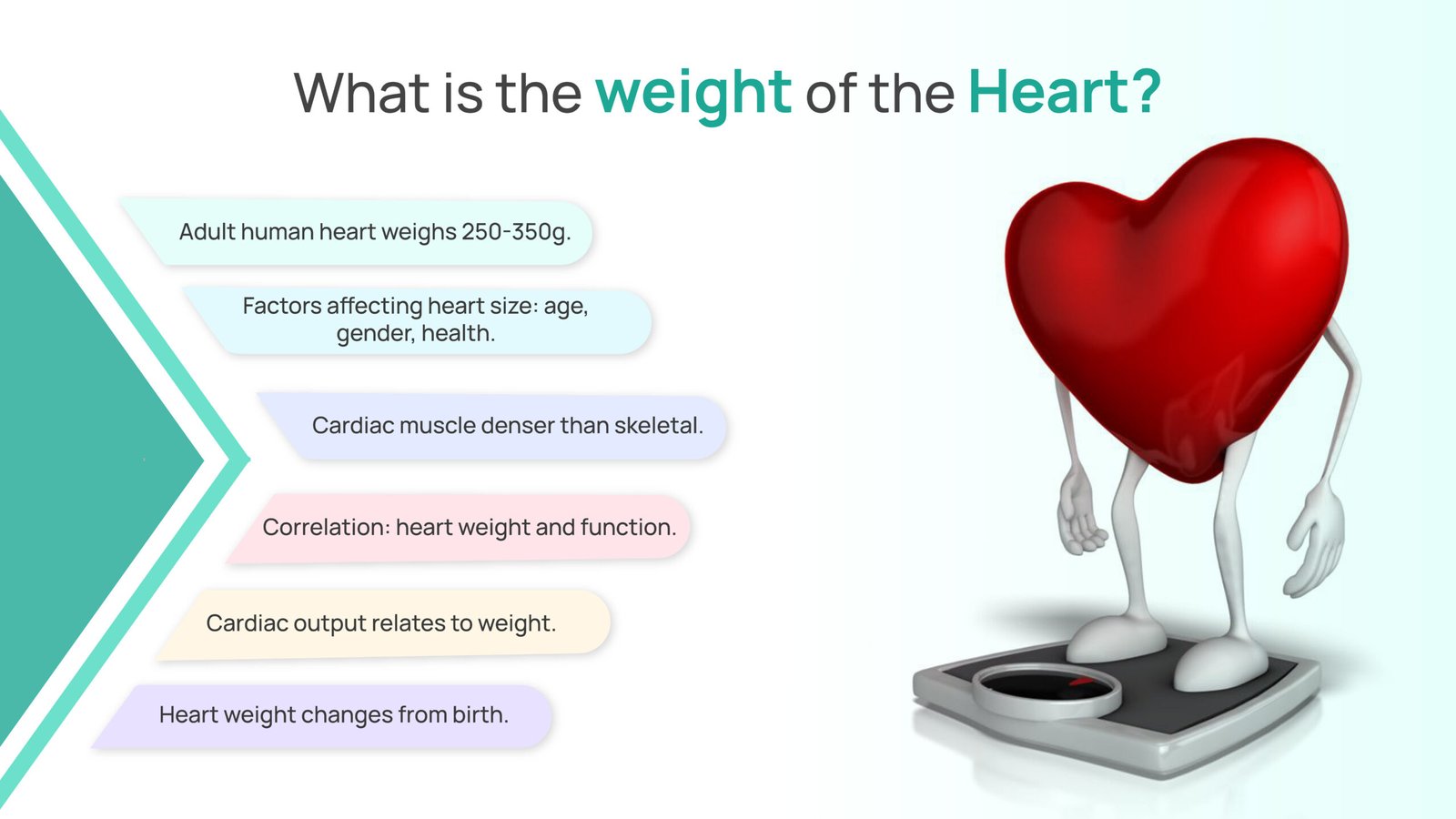
Author:- Mr. Ritesh Sharma
You must have wondered what is the weight of the heart, once in your life. The human heart remains the most essential organ of the human body. It pumps blood throughout the body ensuring that all vital organs receive an adequate amount of oxygen and nutrients. Your ticker is nothing but a marvel of biological engineering being associated with the emotions and the essence of life itself. While understanding the literal weight of the human heart gives surface-level knowledge about how heavy it is, it also gives insights into the astounding functionality of the human heart within the human body.
In this blog, we will delve into the question of what is the weight of the heart and give you worthy insights into how it influences the functioning of the organ. Furthermore, we will also discuss how the human heart undergoes a change in weight from childhood to adulthood. So, dive into the world of the human heart and uncover some useful insights.
What is the weight of the Heart Physiologically?
You must ponder the physiological weight of the human heart in the body. Well, the answer to this is rather simple. The weight of the human heart in the human body gives you a tangible measure of its structure and function. An adult human heart weighs about 250 to 350 grams or 8 to 12 ounces. While this weight tends to change throughout the lifespan of human life, it has hardly anything to do with your emotions. Hence the myth regarding that holds no merit at all.
Instead, the factors that affect the size of the human heart are age, gender, and overall health. Now, you must wonder how an organ with such a small weight is able to carry out the complete load of the human circulatory system. Well, that is the intricacy of the human heart, the chambers of the human heart, heart valves that prevent the backflow of blood to the heart, and the complex network of blood vessels, i.e. arteries and veins. Let’s explore the tissue and muscle of the human heart below.
Exploring Tissue and Muscle of the Human Heart
The small organ human heart which can be fitted in the palm of your hand, contains many tissues and muscles. The primary muscle of the human heart is cardiac muscle tissue, it is commonly known as myocardium. The fascinating thing about this muscle is that it is denser and more robust than the skeletal muscle. Apart from this, the human heart contains connective tissue, blood vessels, valves, and specialized cells responsible for generating electrical impulses to coordinate its rhythmic contractions. This intricate network of muscles and tissues in the human heart makes the study of its weight even more fascinating. These tissues and muscles, combined with valves and blood vessels form the core of the human circulatory system which is administrated and managed by the human heart.
Correlating Weight and Functionality
It goes without saying that there is a strong correlation between the weight of the human heart and its functionality. While the physiological weight of the human heart sounds relatively small, its functioning is pivotal in maintaining the vitality of human life. The size and weight of the human heart are directly correlated with its functionality. Its pumping capacity, determined by factors such as body size, metabolic demands, and physical activity levels is related to its size and weight. If someone has a larger heart then it contains more muscle mass enabling it to pump the blood more efficiently.
Cardiac Output of the Human Heart
There is an intricate interplay between the weight and cardiac output of the human heart. The volume of blood pumped by the human heart per minute is directly proportional to its weight and size. This physiological parameter is essential in determining the rate of the human heart to deliver oxygen and nutrients to the tissues and remove metabolic waste products. If you have a healthy heart, then it can adjust its cardiac output in accordance with the body’s demands.
When Weight Reflects Disease
In some cases, the alterations in the weight of the human heart reflect some diseases. For instance, there is a hypertensive heart disease that hypertrophy, or thickening, of the heart muscle, resulting in increased heart weight. Increased heart weight can also cause heart palpitations and cardiac arrhythmias of different arrhythmia classifications in some rare cases. Apart from this, there are some conditions such as heart failure that may lead to myocardial atrophy and decreased heart weight. Decreased weight of the heart can cause diseases such as bradycardia.
The Weight of the Heart from Birth to Adulthood
In the lifespan of the human, the weight of the heart undergoes several changes. In the developing baby, i.e. a fetus, the size of the heart is tiny. However, as the fetus grows, the heart also grows proportional to the size of the body. After the birth of the baby, the heart continues to grow with other organs of the body. Furthermore, entering adulthood, the heart reaches its normal weight of 250 to 350 grams.
Research and Clinical Applications
The question of what is the weight of the heart not only intrigues anatomists and physiologists but also clinicians and researchers. New advances in imaging techniques and computational modeling, let you measure the precise weight and size of the human heart. The helps in diagnosing and management of cardiovascular diseases, such as monomorphic ventricular tachycardia, WPW syndrome, ventricular trigeminy, etc.
In conclusion, the question of what is the weight of the heart? has no definitive answer in the realm of biology. The weight of the heart ranges between 250 to 350 grams normally. However, various factors influence it as well. The weight of the human heart also indicates its functionality in maintaining the seamless state of the human circulatory system.





